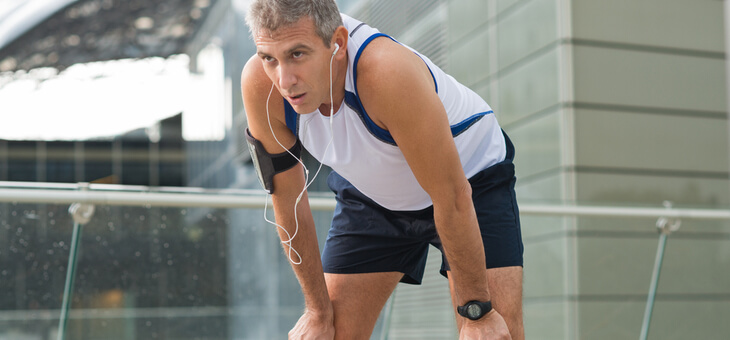I recently had a shoulder operation and as I prepared to leave the hospital, I was visited by a physio who outlined a set of strengthening exercises for my rehab.
I asked him when I should begin and was pleasantly surprised by his answer: “Today.” He said the latest medical evidence was the earlier the better.
Good to know, but is the same approach to exercise recommended for recovery from a cold or flu, and even COVID?
The answers to these questions, as you might expect, are not entirely straightforward. Different people will have different experiences. But there are some general rules for those who have had a relatively minor illness, such as a cold or even mild flu.
Read: Podcast: Healthy ageing through diet and exercise
In these cases, one overarching rule of thumb recommended by doctors is to avoid exercise if you have a temperature over 38°C. Normal body temperature can range between 36.1°C and 37.2°C, but once it gets beyond 38°C, your body can’t regulate its temperature effectively and you may lose more fluid than normal, which can lead to dehydration.
If your body temperature is normal and your symptoms are mild, a light workout such as a brisk walk or short bike ride is not likely to cause any concerns.
One point to note, though, is that while exercise has been shown to boost immunity, it will not in any way accelerate your recovery from a cold or flu. A study published in the British Journal of Sports Medicine compared two groups of people with a cold, one doing 30 minutes of moderate exercise five days a week and the other group simply resting. The results demonstrated no difference in the length of illness between the groups.
Read: Can taking vitamins help you recover from COVID?
So, for a mild illness, exercise is unlikely to make things worse, and the endorphins produced are likely to have a positive effect on your mood. But is the same advice applicable for those recovering from COVID?
Renee Thornton, general manager of occupational health provider Rehab Management, says to follow the latest medical advice.
“The advice is to rest properly and let your body recover when you are sick, and it seems that is even more important after COVID. COVID-19 is a respiratory illness that can cause severe illness and there are risks of ongoing complications. Taking it slowly is key!”
Read: Can I get the flu jab if I’ve just had COVID-19?
In an article published in the Australian Journal of General Practice, Life after COVID-19: The importance of a safe return to physical activity,the authors – Jacob Jewson, Alice McNamara and Jane Fitzpatrick – break post-COVID sufferers into three risk groups:
- The low-riskgroup comprises younger patients (aged under 50) who have had an asymptomatic infection or mild upper respiratory symptoms that resolved within seven days.
- The intermediate risk group includes patients who experienced symptoms or fatigue for longer than seven days, or ongoing shortness of breath or chest pain, which did not require hospitalisation.
- Individuals who required hospitalisation are classed as high risk.This includes, “patients with any evidence of system involvement outside the respiratory tract,prolonged shortness of breath or chest pain at rest or with activities of daily living, along with significant cardiac comorbidities or abnormal electrocardiogram (ECG) or troponin findings during the illness”.
In summary, if you are recovering from a cold or mild flu, the advice is, “listen to your body” and, when unsure, listen to your GP.
If, however, you are recovering from COVID, a layer of extra caution will not go astray. Monitor your symptoms carefully and seek medical advice if in any doubt.
If you enjoy our content, don’t keep it to yourself. Share our free eNews with your friends and encourage them to sign up.
Disclaimer: This article contains general information about health issues and is not advice. For health advice, consult your medical practitioner.

